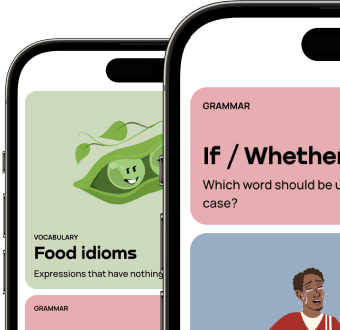Pronom Réfléchi – Master Reflexive Pronouns in French
Contents
Key takeaways
- Reflexive pronouns show that the subject performs the action on itself.
- In French, they are: me, te, se, nous, vous, se.
- They are always used with reflexive verbs (se laver, s’habiller, se réveiller).
- Reflexive pronouns appear before the verb in most tenses.
- In compound tenses, they go before the auxiliary verb and agree with the subject.
What Are Reflexive Pronouns in French?
Reflexive pronouns (pronoms réfléchis) are small words that link the verb back to the subject. They answer the question “to whom is the action done?” and show the subject is acting on itself.
Examples:
- Je me lave. → I wash myself.
- Tu te réveilles. → You wake yourself up.
- Ils se parlent. → They talk to each other.
The Reflexive Pronouns in French
| Subject | Reflexive Pronoun | Example | Translation |
| je | me (m’) | je me lève | I get up |
| tu | te (t’) | tu te couches | you go to bed |
| il/elle/on | se (s’) | il se lave | he washes himself |
| nous | nous | nous nous habillons | we get dressed |
| vous | vous | vous vous reposez | you rest |
| ils/elles | se (s’) | ils se réveillent | they wake up |
Position of Reflexive Pronouns
In Simple Tenses
The reflexive pronoun goes before the verb.
- Je me couche tard. → I go to bed late.
In Compound Tenses (Passé composé)
It goes before the auxiliary verb (être).
- Je me suis levé(e). → I got up.
In Negatives
The ne… pas wraps around both the pronoun and verb.
- Je ne me lave pas. → I don’t wash myself.
Reflexive Pronouns in the Imperative
In the affirmative imperative, pronouns follow the verb and are joined with a hyphen.
- Lève-toi ! → Get up!
- Habillons-nous ! → Let’s get dressed!
In the negative imperative, pronouns go before the verb.
- Ne te lève pas ! → Don’t get up!
1
Examples of Reflexive Pronouns in Sentences
- Nous nous dépêchons. → We are hurrying.
- Ils se reposent après le travail. → They rest after work.
- Elle s’est habillée rapidement. → She got dressed quickly.
- Vous vous souvenez de cette histoire ? → Do you remember that story?
Reflexive Pronouns vs Non-Reflexive
Some verbs change meaning depending on whether a reflexive pronoun is used.
- Je lave la voiture. → I wash the car.
- Je me lave. → I wash myself.
- Elle rappelle son ami. → She calls her friend back.
- Elle se rappelle son enfance. → She remembers her childhood.
Exercises: Practice Reflexive Pronouns
1. Fill in the blanks
- Je ________ lève à 7h.
- Tu ________ couches tard.
- Ils ________ parlent souvent.
2. Translate into French
- We get dressed quickly.
- She remembers her childhood.
- Don’t wake up too late!
3. Identify the reflexive pronoun
- Elle s’habille tôt.
- Je me couche.
Answers
- me, te, se
- Nous nous habillons vite | Elle se souvient de son enfance | Ne te réveille pas trop tard !
- s’, me
Tips for Mastering Reflexive Pronouns
- Memorize the list: me, te, se, nous, vous, se.
- Always pair them with reflexive verbs in your practice.
- Pay attention to their placement in negatives and compound tenses.
- Practice with daily routine verbs: se lever, se coucher, se brosser.
For more practice, review French verb tenses overview. And if you’re planning your study goals, see how long it takes to learn French fluently.
Summary
Reflexive pronouns in French (me, te, se, nous, vous, se) are essential for expressing actions the subject does to itself. They appear before the verb in simple tenses, before the auxiliary in compound tenses, and shift position in the imperative.
By practicing common structures like je me lève, tu te couches, ils se réveillent, you’ll master reflexive pronouns quickly. Guides like Reflexive Pronouns in French and Lingoculture’s overview of Me Te Se Nous Vous Se provide additional examples. Over time, these will become second nature as you learn with French learning platform.

Comments